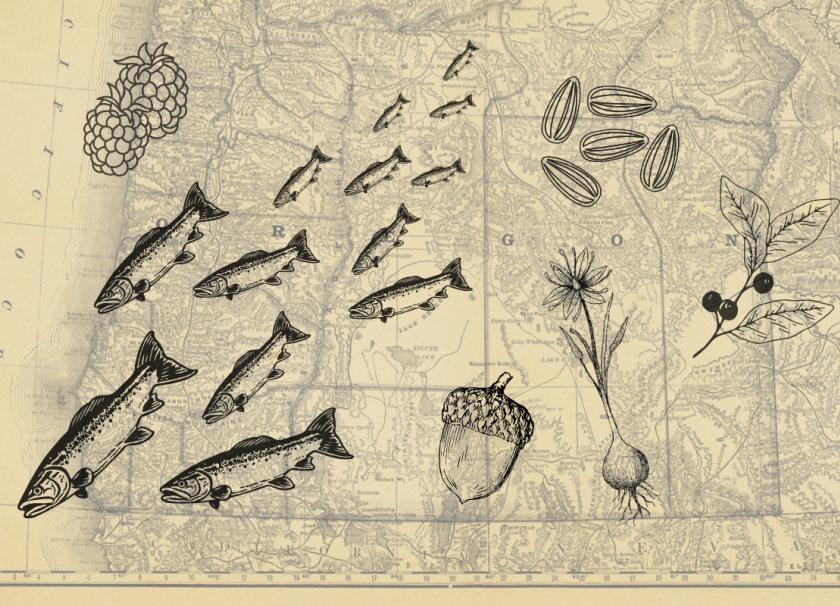
Celebrating Indigenous Food and Traditions
Each October, when so many across the country celebrate Indigenous Peoples' Day, the Ashland Food Co-op pauses to reflect on the land we call home, the people who've cared for it, and how food and connections to the land can help us return that inheritance in a positive way. This holiday isn’t just a request that we correct the record of history, but that we also plant a greater sense of home, appreciation, and responsibility. In southern Oregon, that means exploring the histories and teachings of the Shasta, Takelma, Latgawa, and other tribes whose ancestral lands include what is now Ashland.
Indigenous peoples in our region lived prior to Euro-American settlement in a deep relationship with food cycles and place. In the Rogue Valley and along the Table Rocks, the Takelma were sometimes called “Dagelma,” meaning “those who dwell by the river.” Life revolved around the waters and the changing seasons. Salmon filled their nets, while wild roots, berries, seeds, and game rounded out their meals. As the seasons changed, they followed the rhythms of the land, moving between elevations to fish, gather, hunt, and carefully store what they would need for the months ahead. Their activity wasn’t just for survival, but for reciprocity: farming soils, burning to maintain open meadows, incubating plant habitats, and honoring areas of ceremony. Their ways of tending the land remind us that we still have much to learn about balance, respect, and stewardship.
Deep disruption came in the mid-1800s: the Rogue River Wars of 1855–1856, when numerous Indigenous communities were forcibly relocated, treaties were violated, and war and disease devastated populations; the brief existence of the Table Rock Reservation was formed and abolished; and numerous descendants of these groups found themselves caught up in confederated treaties or relocated to other reservations. In spite of this break, Indigenous families still reside here, remember, revive language, and preserve cultural food traditions throughout Oregon today.
Food is one of the most powerful connections we have to memory, respect, and the planet itself. Here in Oregon, "first foods" like salmon, roots, berries, and game are still central to Indigenous food sovereignty.This work in southern Oregon centers on renewal: restoring native plants, rebuilding traditional harvesting, and restoring both cultural connections and care for the earth. By the fact that co-ops are community, we can be the change by learning about Indigenous foodways, finding Indigenous-grown produce when possible, and supporting organizations that uplift Native voices.
Indigenous Peoples’ Day reminds us that honoring the past is not only about memory, but also about the actions we take today. We encourage you and our community to become conscious of whose territory you stand on, to contribute financially to Native nonprofits, and to buy at Indigenous food producers. There's something good we can do towards reciprocity, justice, and healthier relations with people and places.
Sources:
- OSF Ashland Land Acknowledgment: https://www.osfashland.org/land-acknowledgment
- BLM Table Rocks History: https://www.blm.gov/programs/recreation/recreation-activities/oregon-washington/tablerocks/cultural-history/regional-tribes
- Rogue River Wars: https://en.wikipedia.org/wiki/Rogue_River_Wars
- Table Rock Reservation: https://en.wikipedia.org/wiki/Table_Rock_Indian_Reservation
- Travel Oregon – Indigenous Foods: https://traveloregon.com/things-to-do/culture-history/celebrate-oregons-indigenous-foods/
- My Oregon – Indigenous Foodways in Southern Oregon: https://www.myoregon.gov/2022/12/20/how-indigenous-communities-are-reclaiming-knowledge-and-relationships-to-first-foods-in-southern-oregon/
More Co-op News

Planning for Summer... and Smoke
By Emile Amarotico, General Manager
If we are lucky, we’ll only have another seven week smoke intrusion this summer. If we are not, we could be the next Paradise. In less than 13 hours, last November’s Camp Fire wiped out nearly 19,000 structures and more than 80 lives. With community help, we were able to raise over $14,000 to support Chico Natural Foods Co-op’s efforts to feed some of the nearly 20,000 displaced Paradise residents.
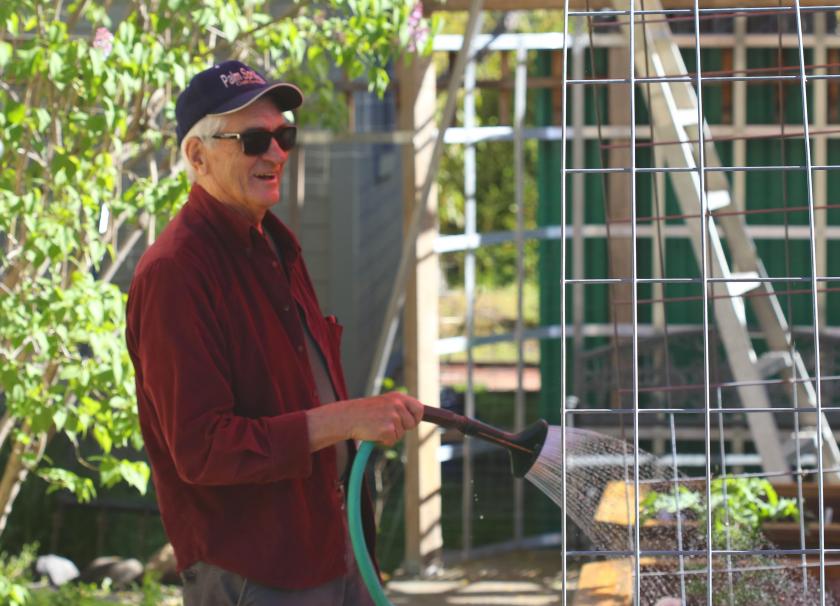
The Co-op's "Secret Garden"
Did you know the Co-op employees have a small garden on our campus? Planning and management falls on our fantastic Co-op volunteer: Henry Herting.
Below, Henry shares some background on the garden, what it’s used for, and some additional tales from over the years.
Originally, the need for a kitchen garden arose from having a kitchen classroom in which culinary classes were being held. Visiting chefs have always been invited to use the garden for any ingredients they may have forgotten or items they could use as garnish for their dishes.
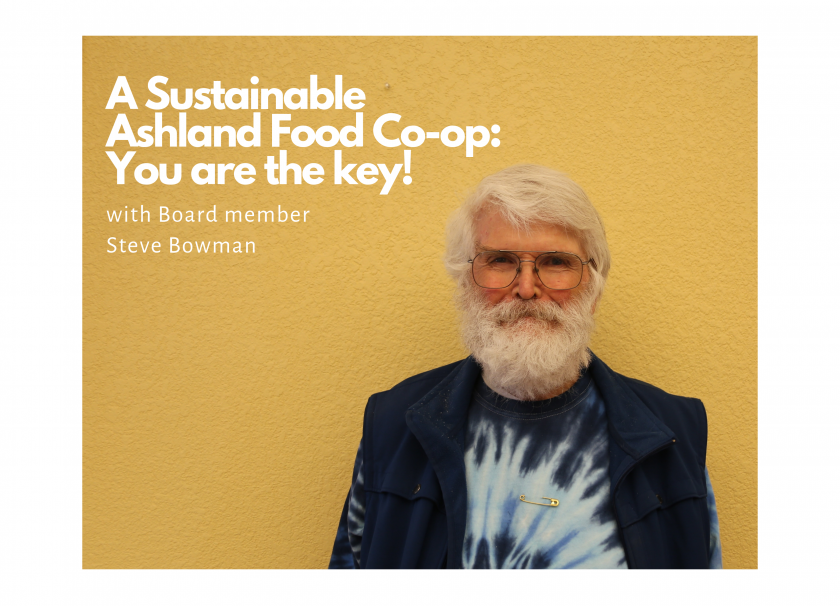
Sustainable Ashland Food Co-op: You are the key!
By Steve Bowman, AFC Board Director
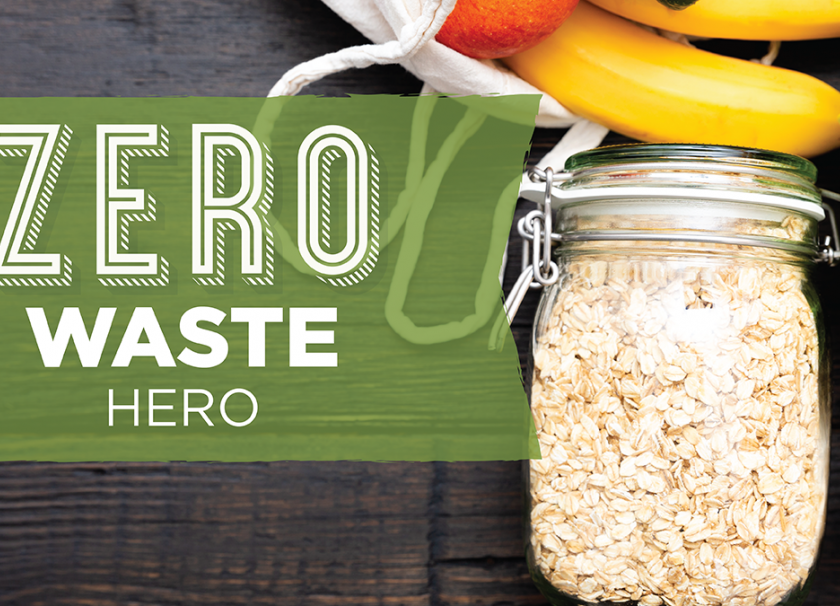
Tips for a Sustainable Kitchen
By Mahlea Rasmussen, Education Coordinator
Outside of work I spend a lot of time in the kitchen. I find it a soothing space to create nourishing meals and lasting memories. I find it essential to be as eco-friendly as possible and a few changes can transform your kitchen into a sustainable center of your home.
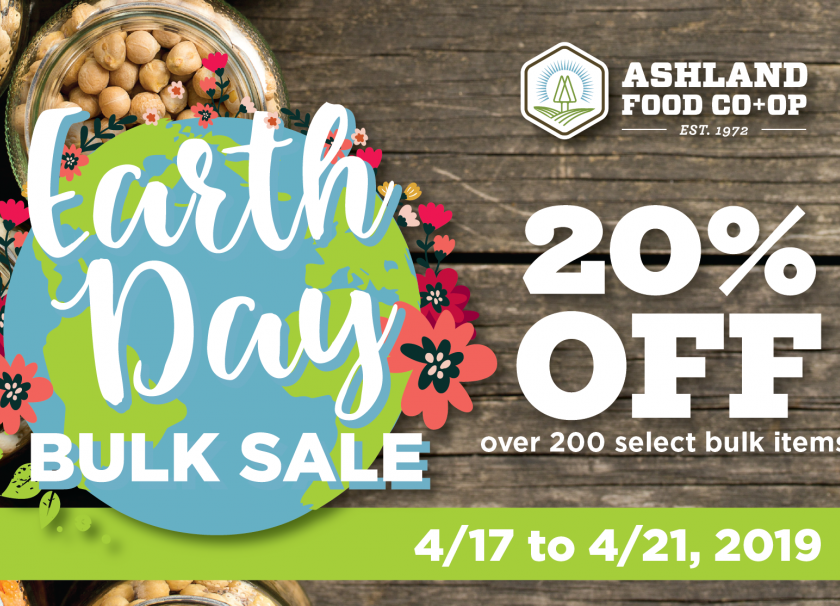
Earth Day Bulk Sale! April 17-21
Save money while working towards a more sustainable shopping experience! The Co-op bulk department is a great "first stop" for your grocery lists - everything from hummus mix to local honey to pet food is available. Plus there's less waste, all the way from shipping to ended up in your shopping cart.
Check out a quick tour below:

Film festival giveaway
Enter your name and email below to be entered to win two film vouchers for the 2019 Ashland Independent Film Festival.
No purchase necessary. Giveaway is not endorsed or sponsored by AIFF. US residents only. Entry will be closed at 5pm PT on Monday, April 15.

The state of plastics
Many Co-op owners and shoppers have shared their interest in reducing plastic usage in the store. From bioplastics, to compostable plastics to recycling options, the Ashland Food Co-op continues to research what works best as we move towards our goal of being a zero waste store. Here is where we stand.
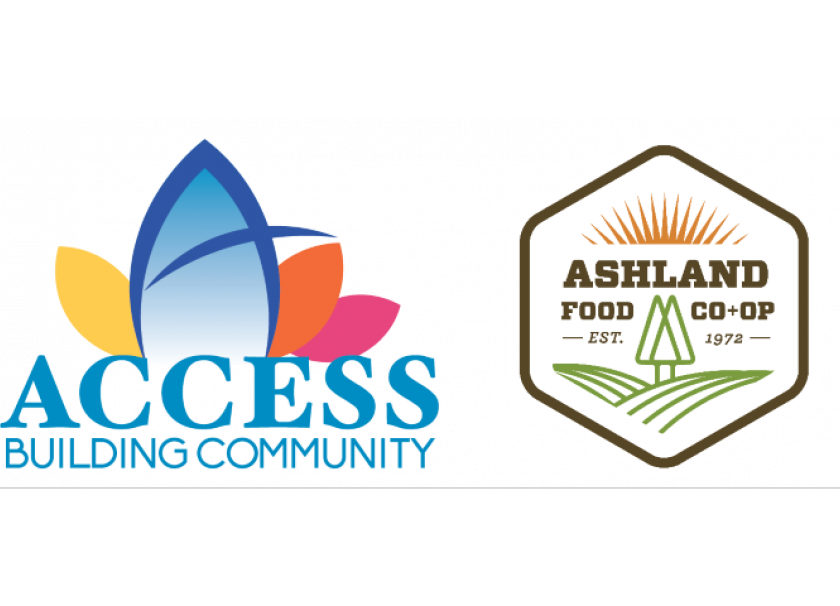
Ashland Food Co-op Celebrates 20-year Partnership with ACCESS
We are proud of a partnership with ACCESS that has benefited the community immensely over the past twenty years. Read on for more about the partnership, or watch the short video below.
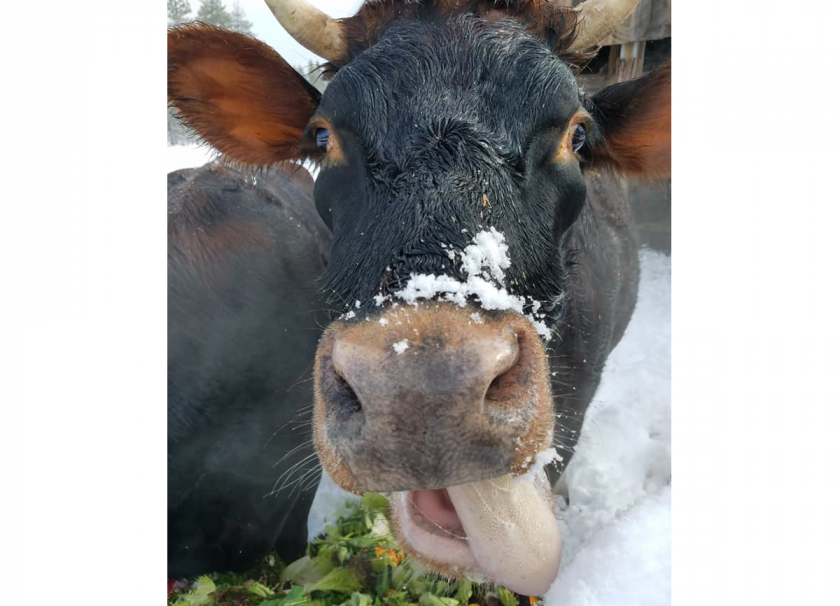
Food waste at the Co-op
By Rianna Koppel, Sustainability Coordinator
How many times in the past month have you reached back in the fridge to snack on some fresh strawberries only to discover… mold?! In the United States, 40% of food is wasted every year. Luckily, how we address food waste can have a major impact. According to Paul Hawkin’s Drawdown, reducing food waste is #3 on the list of best ways to reduce carbon dioxide emissions. At the Co-op, we use the EPA’s Food Recovery Hierarchy as a guide to bettering our own practices.
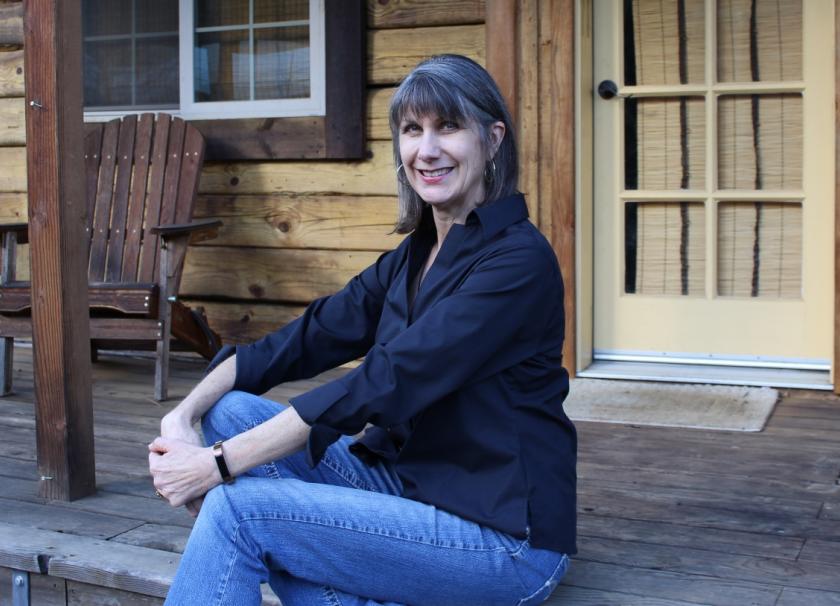
Meet Cooking Class Instructor, Gianaclis Caldwell
Get to know Gianaclis Caldwell ahead of her class, "Easy Mozzarella and Burratta - From Scratch!" on March 7. Gianaclis is the author of the award-winning book Mastering Artisan Cheesemaking and owner of Pholia Farm.
Tell us how your love of cooking (or cheese) and food began.

Wellness Secret Weapons
There are still plenty of colds and viruses making their rounds, and we want to help you better defend against them!
In January, we asked on social media what kind of secret weapons you use in the winter to stay healthy. We had a lot of responses, so we'll start with the All-Stars.
With your initial recommendations, our Wellness team reviewed the suggestions and picked the products with the highest quality standards and best feedback. Check those out below.
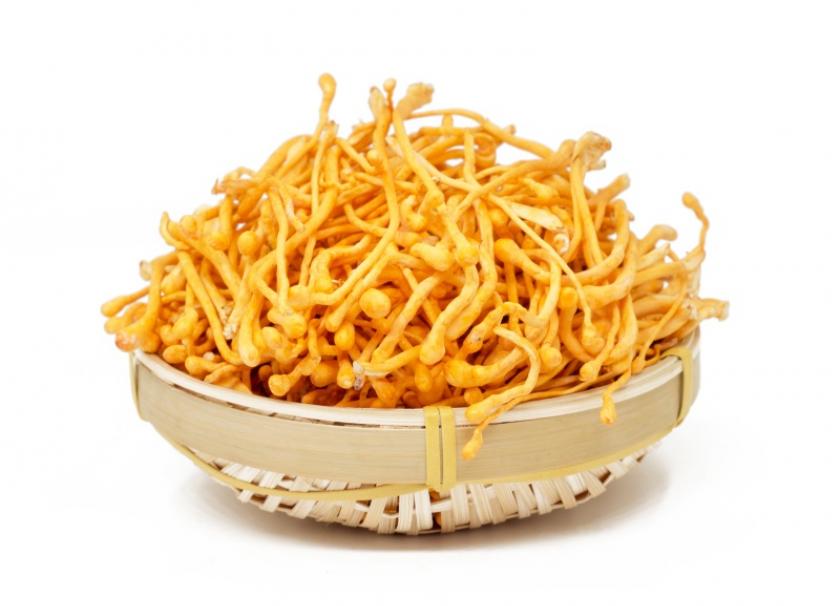
Mushrooms for wellness
You may have heard about the fascinating discovery that trees can communicate with each other. What’s the secret? The mycelia - tiny strands of fungus - in the soil form a vast underground network through which trees send chemical signals to their neighbors.
The mycelia differs from the fruiting body of the mushroom, which is the reproductive component that contains spores and is thought to be higher in Beta Glucans.
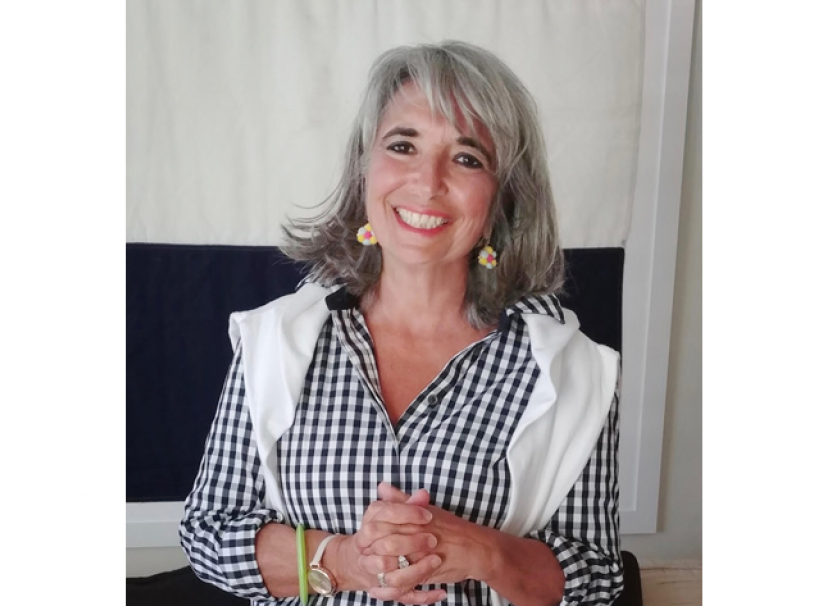
Meet class instructor, Joette Calabrese
This class instructor profile is connected to the February 27 free lecture, "You, Too, Can Beat the Flu!"
On an early Kolkata (Calcutta) morning, thick crowds gather outside the gates of the hospital while officials yell out "Brain tumor, kidney failure, cancer patients form a line here!” Hopeful patients, family members and caregivers arrange themselves by disease symptom.
What to do with all this citrus?!
So you grabbed a few too many extra oranges and grapefruits and lemons (and some finger limes, and some satsumas…), and rather than watch them go bad, we want to provide you with some ideas on how to reduce waste. You’ll also get to enjoy citrus in a lot of new ways!
There are many guides and recipes across the internet (like this one by our friends at Grow Forage Cook Ferment), so here are a few ideas to get your creative and citrus juices flowing.

Update from the General Manager: "Food for Paradise" campaign
Ashland Food Co-op's General Manager, Emile Amarotico, ends 2018 on a very uplifting note with a report back on the "Food for Paradise" donation campaign. Watch the video below, or read on for an extended written update.
Hello, this is Emile Amarotico, the general manager of Ashland Food Co-op with an update on the Co-op’s Food for Paradise initiative.
